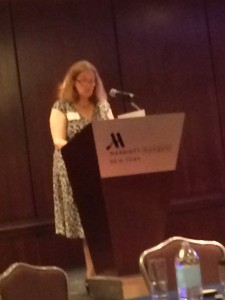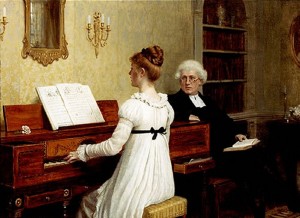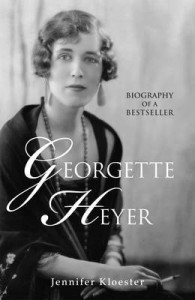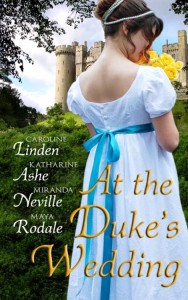One of my favorite parts of the Romance Writers of America (RWA) Annual Conference is that the Beau Monde chapter of RWA holds their annual conference the Wednesday before. I try always to attend. It is a great chance to see old friends and to hear great presentations on my favorite topics–anything about the Regency era!
 This years conference keynote speaker was Miranda Neville, who honored her recently deceased father in her speech. Her father nurtured Miranda’s interest in history and took her and her sister to museums throughout Europe as a result. If that wasn’t enough to envy, she also had an idyllic childhood on a farm in Wiltshire and went on to work for Sotheby’s, writing catalogues of rare books and original letters and manuscripts. This meant she was paid to read the personal correspondence of historical figures, including those of “our” time period. Needless to say, Miranda likes to get the history correct in her books!
This years conference keynote speaker was Miranda Neville, who honored her recently deceased father in her speech. Her father nurtured Miranda’s interest in history and took her and her sister to museums throughout Europe as a result. If that wasn’t enough to envy, she also had an idyllic childhood on a farm in Wiltshire and went on to work for Sotheby’s, writing catalogues of rare books and original letters and manuscripts. This meant she was paid to read the personal correspondence of historical figures, including those of “our” time period. Needless to say, Miranda likes to get the history correct in her books!
Our Risky Janet Mullany presented a workshop on servants, but I won’t say much about that, because she may be telling you herself. She told us about Black servants who were in England for many years. She mentioned one of the duties of footmen was to deliver messages for the lords and ladies for whom they worked. I thought it a clever fact to use in a future story that the footmen might take hours to deliver such messages, even though the distances might be nor more that a mile away.
Another Risky who presented a workshop was Isobel Carr, who spoke about the fabrics of the time period, about the different weaves of fabrics and the different materials from which they were made. Isobel has so much expertise to share on this topic, it is much too extensive for me to repeat. One interesting fact, though. We all believed that Scottish clans each had their own tartans. I imagined the clans rushing into battle at Culloden each wearing their clan’s plaids. It turns out that, in the late 18th century, a man named William Wilsons published a pattern book in which he assigned clan names to different tartans. The clans themselves had nothing to do with it.
 Risky friend Louisa Cornell talked about The Musical Education of a Regency Young Lady. I’ve heard Louisa speak on this topic before and I was so happy to hear Louisa, formerly a professional opera singer, sing some of the examples. She showed us what (and how) a sweet young might sing at a recital, what a talented young lady might sing, and what selections would be scandalous for a young lady to sing. Turns out, singing scandalous songs was acceptable in society.
Risky friend Louisa Cornell talked about The Musical Education of a Regency Young Lady. I’ve heard Louisa speak on this topic before and I was so happy to hear Louisa, formerly a professional opera singer, sing some of the examples. She showed us what (and how) a sweet young might sing at a recital, what a talented young lady might sing, and what selections would be scandalous for a young lady to sing. Turns out, singing scandalous songs was acceptable in society.
Jackie Horne spoke about The Material Culture of Childhood and showed how the different cultural views on childhood were reflected in their toys, furniture, and clothing. Before 1750, children were rushed to adulthood, so their furniture, clothing, etc. reflected that. 1750 to 1830 was the era of the Natural Child, the belief that childhood was a special time requiring more freedom of movement than children had experienced previously. One interesting fact Jackie told us. Baby carriages were not invented until 1830, so don’t have your Regency characters pushing one!
Cheryl Bolen shared tons of information on the interiors of Regency houses, both in Town and in the country. She showed us slide after slide of wonderful Regency interiors, including some beautiful Adams rooms. You can see these images on her Pinterest Boards. An interesting fact–her floorplan of a typical Regency town house showed that the master’s bedroom was on the ground floor behind the dining room.
 The Beau Monde was honored to have Jennifer Kloester, author of the recent acclaimed biography of Georgette Heyer. Ms. Kloester gave us a lovely picture of Heyer, including many of the insider tidbits she’d learned doing her research. She showed us a photograph of Heyer in her 20s by a then famous photographer. She looked like a 13 year old. Another photo the next year was more like the one on this book cover.
The Beau Monde was honored to have Jennifer Kloester, author of the recent acclaimed biography of Georgette Heyer. Ms. Kloester gave us a lovely picture of Heyer, including many of the insider tidbits she’d learned doing her research. She showed us a photograph of Heyer in her 20s by a then famous photographer. She looked like a 13 year old. Another photo the next year was more like the one on this book cover.
I missed the last workshop, because I needed to get ready for RWA’s huge Literacy Book Signing, but I heard it was wonderful, too. It was about Regency dance and was intriguingly titled Rethinking the Regency Ballroom with special guest Susan de Guardiola.
Miss Guardiola also led us in dance later at the evening soiree, where I joined other Beau Monde members, many in period costume, dancing the dances of the Regency. My dance partner was Joanne Grant, Senior Executive Editor at Harlequin UK. She and I have danced at previous soirees and it was a delight to have her attend this year’s and dance with me again!
It was a wonderful Beau Monde conference. Special thanks to Janna MacGregor, the coordinator of the conference. She did a marvelous job! And has become a great friend of mine, as well!
What topics would you like to hear presented at a Beau Monde conference? I’ll pass on your ideas!






